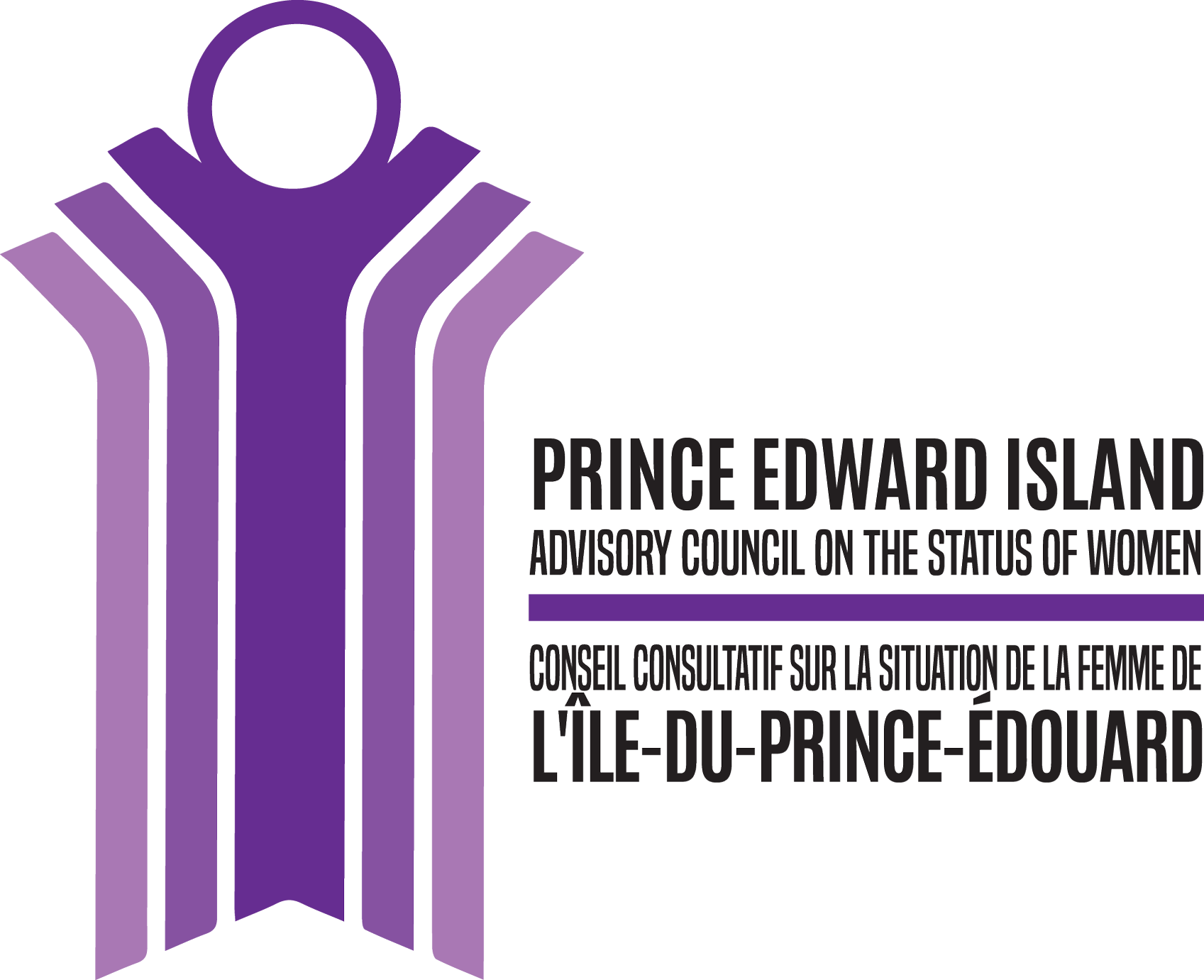Feedback on Workplace Harassment Regulations
PEI Advisory Council on the Status of Women
March 1, 2019
Dear Mr. Miller,
Thank you for accepting this feedback directly. It exceeds the 2,000-character limit on the online feedback form. As Executive Director of the PEI Advisory Council on the Status of Women, I reviewed the amended legislation and regulations on behalf of Advisory Council members and am pleased to provide some feedback.
Comments are based on previous Council member discussions of this legislation and similar legislation. Some of this discussion took place in the fall of 2018 as the Council updated and implemented its own comprehensive harassment policy, including psychological as well as physical and sexual harassment. It is Council’s practice, whenever possible, to implement policies that meet or exceed the standard that we recommend to government.
A storm cancellation meant that Council members were not able to have an in-person conversation about the specific legislation amendments and regulations before the March 1 deadline for feedback. However, if Council members have additional comments, we will provide these as soon as possible.
SUPPORT FOR THE AMENDED LEGISLATION AND REGULATIONS
We commend government for making changes to the Occupational Health and Safety Act to improve this important Act to include psychological health and safety. We support the proposed amendments and regulations. We know the amendments to the Act included consideration of gender and diversity, and we were pleased to take part in consultations that led up to the changes. The consultation was both meaningful and effective. We are pleased to engage in consultation about the regulations.
Our comments, then, are meant to highlight gender-based challenges that will affect the application and use of the legislation and regulations, not to criticize the important steps represented in the efforts to support psychological and physical health and safety in Prince Edward Island Workplaces.
COMPLAINT-BASED PROCESSES
The challenge with any complaint-based process to protect workers and employers in their workplaces is that complainants are frequently vulnerable and feel unable to make a complaint. Over the years, most of the members of the public who have called our office for information about what to do about workplace harassment have indicated they cannot or will not pursue a complaint.
Like many forms of violence related to inequality (whether the inequality is based on gender or other human rights factors), harassment is an abuse of power. This means that, by definition, the person who experiences harassment is less powerful than the harasser, or is perceived as less powerful, or is rendered less powerful by the harassment. These power dynamics alone make it difficult for victims of harassment to come forward. They are already in a less powerful position or have been rendered less powerful by harassment.
Low wages and low incomes for work affect a large number of Islanders, and while rates of absolute poverty are low, many Islanders live very close to the poverty line. Closeness to the poverty line, living cheque to cheque, and have few savings are all deterrents to complaining about harassment because of the fear that a complaint will indirectly lead to job loss.
From a gender perspective, structural inequality makes women more vulnerable to job loss, and there is definitely fear of job loss or other financial repercussions after a complaint of harassment. As a group, women continue to be paid less than men, which means they are more vulnerable financially to job loss. Additionally, women are more likely to work part-time, and women who work part-time are more likely to do so because of caregiving responsibilities. Lone-parent families in Prince Edward Island are vulnerable to poverty and low-income, and the vast majority of lone-parent families are headed by women. These gender dynamics affect perceived ability to make a complaint about workplace harassment: they can’t afford to lose their job without significant consequences.
Gender differences intersect with other factors that can increase vulnerability, whether those other factors include race, culture, language, gender expression, age, ability, or other differences. Less obvious but particularly relevant to workplace harassment and to PEI’s legislation amendments and regulations are 1) the rural nature of much of PEI and its workforce and 2) the seasonal nature of much PEI work.
1) Workers in rural PEI workplaces often have few alternative places to work if they experience harassment in their workplace, and severely limited public transportation restricts their options even further. Rural workers may experience these realities as barriers to complaining about harassment at work and getting it addressed. Rural workers may not complain because they can’t easily move to another workplace.
2) Seasonal workers often have little opportunity to change jobs in the middle of a short season. If they rely on Employment Insurance for part of their income, they have to reach the threshold of hours that will ensure they are eligible for EI supports. Seasonal workers may not complain because they fear losing hours and being ineligible for EI; they may weigh the balance between enduring harassment for a season compared to risking loss of income for the rest of the year.
It should be noted that because maternity and parental benefits and other caregiving benefits are delivered through the EI system, people who are about to become new parents, or who require compassionate care leave, are vulnerable to a fear of lost hours as well.
We urge government to consider ways to address the needs of victims of harassment who, for whatever reason, feel unable to make a complaint. We would welcome an opportunity to think through these challenging dynamics with you and with the PEI Human Rights Commission.
ACCOUNTABILITY AFTER SETTLEMENT OF A COMPLAINT
There is work to do in Prince Edward Island to reassure victims of harassment that harassers will be held accountable and face repercussions. While we only have anecdotal evidence and cannot prove a trend, Council members are aware of a number of harassment complaints that were settled between the complainants and employers but that ultimately resulted in women complainants leaving their careers, and even leaving the province with their families, while their harasser faced no visible consequences. Victims of harassment know that, even if the situation is resolved appropriately and according to the best available processes, it is the complainant’s work and career that are most likely to be unsettled.
Situations where harassment complaints fail to affect harassers’ career advancements, some of them known widely in the community, discourage victims from making complaints and shake potential complainants’ confidence that harassers will be held accountable.
We urge government to education employers, including boards of directors of companies, institutions, and not-for-profit organizations, within the scope of law and policy, on appropriate ways to hold employees who have harassed people accountable. Unions would have particular insight into challenges and needs related to accountability, since unions deal with many employers and include within their memberships both people who harass and people who experience harassment.
PROACTIVE EDUCATION AND TRAINING
While the regulations do not prescribe specific education and training, education and training on the dynamics of harassment are needed in workplaces across Prince Edward Island for both employers and employees.
A powerful part of the Occupational Health and Safety Act amendments and proposed regulations is the authority to make orders for violations of the Act.
Proactive education and enforcement will empower workers who experience harassment and employers who have to address it. Appropriate application of the regulations will lead to a positive feedback loop, in which victims feel more confident in making complaints and employers feel more confident addressing harassment and holding accountable those who harass.
Thank you for the opportunity to provide comments on amendments and legislation. We would be happy to discuss any of the points in this feedback in greater detail or in conversation with other groups who may express different views and interests.
Sincerely,
Jane Ledwell, Executive Director


